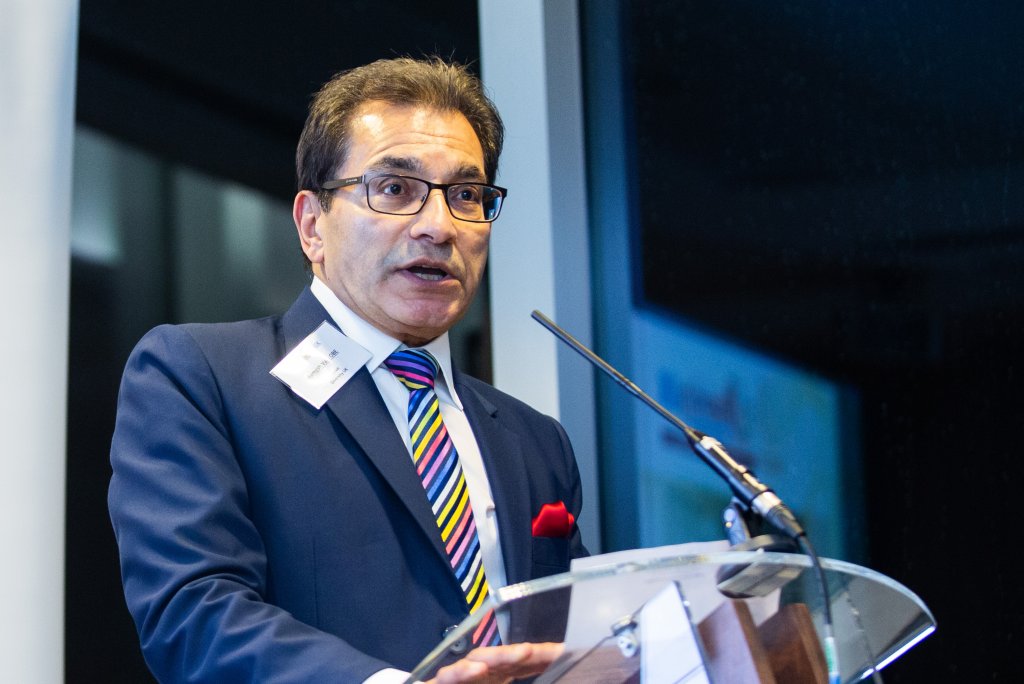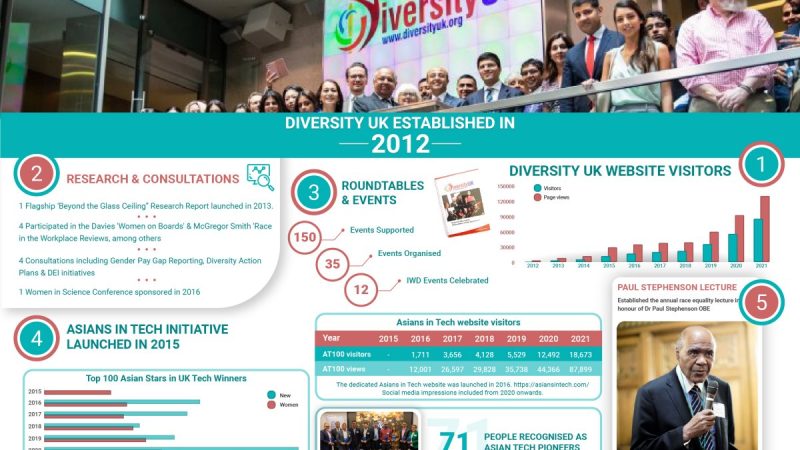Leadership in a post pandemic world: a consultant’s perspective

There has been no shortage of information for businesses on how to navigate the COVID-19 pandemic; what PPE to buy; the measures to put in place to socially distance and how to communicate effectively with employees who were mostly staying at home. But, what happens now, 12 weeks after lockdown was initiated in the UK. Ramesh Vala O.B.E., a Consultant with the international law firm, the Ince Group and a Trustee of Diversity UK, gives us a unique view on leadership in a post pandemic world.
‘ On 6 March, 2020, we celebrated International Women’s Day with a panel of powerful women personalities and an audience of over one hundred staff (with men in the majority). Was this the arrival of a new dawn?
Namaste was my greeting and I predicted this would likely be the greeting for the future if the virus, which was already on our shores, became a pandemic.
Things then moved at a pace and the United Kingdom went into full lockdown on 23 March, 2020.
Three months later, we have a death count of more than 43,000 in the UK and the pandemic has damaged the lives and livelihoods of many people.
The Coronavirus Job Retention Scheme could cost the UK £80 billion
Nearly 12 million people are being supported by the government’s coronavirus assistance schemes, at a cost so far of more than £30 billion. 9.2 million people have been furloughed at a cost of £22.9 billion. Another 2.6 million are on the self-employed support scheme, which has cost £7.6 billion so far. The Office for Budget Responsibility has estimated that the job retention scheme in which the government pays 80% of furloughed employees’ salaries, capped at £2,500 a month, could end up costing taxpayers £80 billion.
Loans to businesses have risen to £40 billion
The UK Treasury has also disclosed that loans to businesses have risen to more than £40 billion, including £28.1 billion in smaller business bounce back loans and £10.5 billion in larger loans through the business interruption loan scheme.
Nearly two thirds of furloughed workers fear they will lose their jobs
A study has found that 39% of workers fear that they will lose their jobs because of the crisis, rising to 65% for those who have been furloughed.
A survey has established that people who already had financial difficulties before the lockdown was imposed were particularly likely to report that their mental and physical health had deteriorated since the pandemic took hold.
With the furlough scheme being phased out with effect from 1 August 2020, and because of long lead times on redundancy programmes, employers are rushing to announce redundancies. By using the furloughing scheme to run concurrently with employees’ notice periods, the government is effectively funding a significant chunk of notice pay.
Large or small, all employers will have to come to hard decisions relatively soon on whether they need to prune staff members and, if so, how far to go. It will be fiendishly difficult. There is macroeconomic uncertainty. No one knows how long it will take for the economy to rebound, nor how far the government and the Bank of England will go in spraying the stimulus hosepipe to nurture the green shoots of recovery.
The uncertainty surrounding lockdown rules has been dealt with by the Prime Minister proclaiming on 23 June, 2020 ‘our great national hibernation is coming to an end.’ The difference between a one metre distancing rule and a two metre one is the difference between survival and closure for many restaurants, pubs and retailers.
‘Economic scarring’ or an amputation?
There’s also the uncertainty about more structural changes in consumer behaviour. Brick and mortar retailers will have to confront the awkward fact that some customer demand is never coming back. There is also the uncertainty about how competitors will react - and who folds first. Bluntly, a pub or cafe or restaurant or theatre or fitness club may be able to survive but only if the rival establishment further up the high street throws in the towel first.
Cutting too far can be as deadly as not cutting deep enough. Skills are not easily replaceable. Firing and then hiring is expensive. Clients/customers lost in the interim do not easily return. Morale and culture can be irrevocably damaged.
So the question is to sack or not to sack? The Bank of England has the quaint euphemism of ‘’economic scarring” to describe the loss of talent or capacity. For staff and businesses alike, it can feel like amputation.
Employers are going to be in a horrible quandary in the coming weeks.
How do I end my reflections on a positive note?
A crisis is not an enjoyable experience, but we learn things.
As Leo Tolstoy once said during a different crisis : ‘Life did not stop and one had to live.’ In a crisis, we learn to have a good time, no matter what, and enjoy life. We should not keep worrying about the small stuff.
Everything is temporary. This time will pass.'
About the author
Ramesh Vala O.B.E. is a Consultant with the international law and business solutions organisation, the Ince Group. He is also a Trustee of Diversity UK.
The comments in this article are those of the author and do not necessarily represent the views of the Ince Group or Diversity UK.



